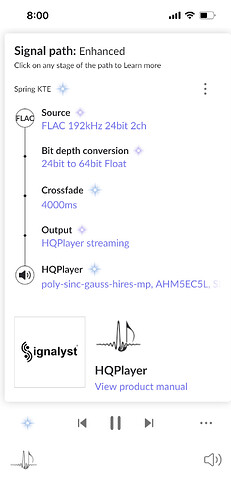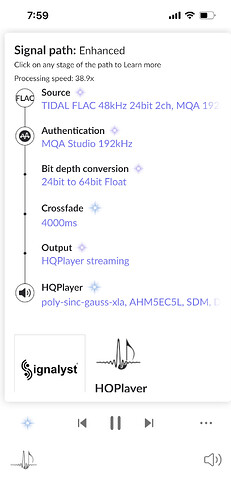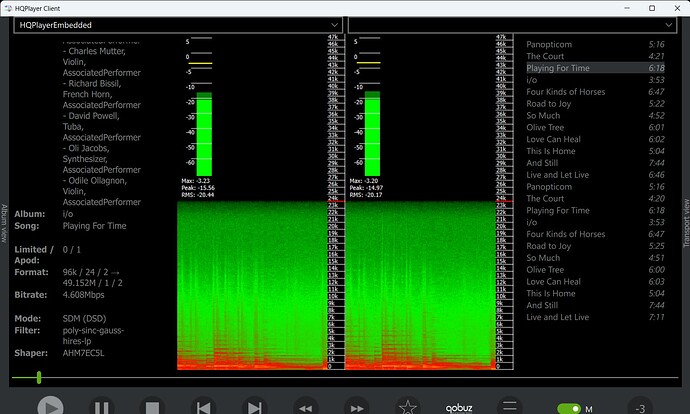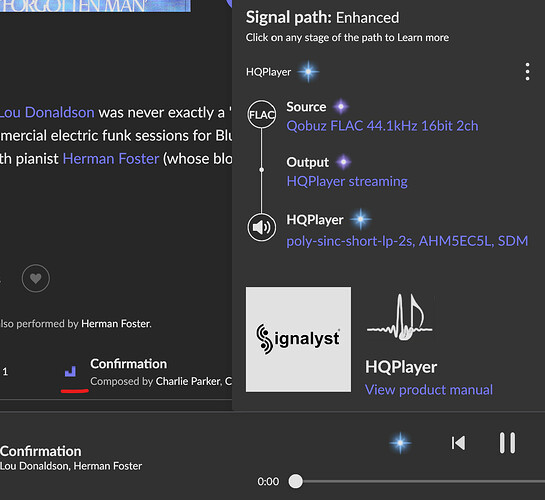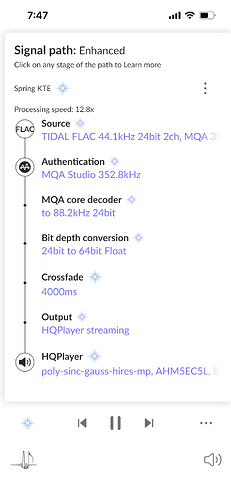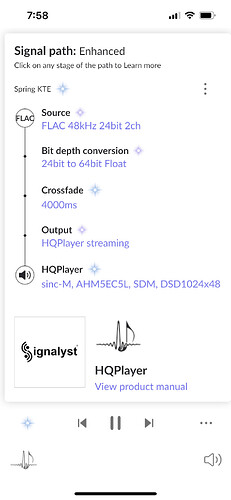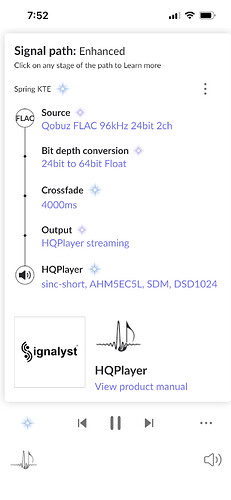There are mathematical tricks for using multiple single precision cores to do higher precision math at the cost of some extra operations.
Top hit on google links to this quite well written paper: https://andrewthall.org/papers/df64_qf128.pdf
GP100 is Pascal generation. It doesn’t have nearly the feature set Ada generation has. Nvidia has improved many things like multitasking support of their GPUs over time. Those raw numbers are rather meaningless.
Thank you for the paper, I will read that. Appreciate it.
In regards to the pure numbers, it has to be somewhat relative at least then within one generation, correct? For example, a higher fp64 theoretical output of card A vs card B within say the Ada generation should produce better hq player results, correct?
I am trying to figure what’s the best way to evaluate a card for hqplayer without me buying 5 more cards to try and then return.
Appreciate your time and work very much.
Yes, you can for example compare CUDA core counts within the same generation to get idea of relative performance. But across generations it is not really useful, since they tend to improve other aspects so much over time.
There is no other easy way than to read what other people report as test results using HQPlayer. Synthetic benchmarks are not really representative, for example because those rarely run multiple parallel tasks on GPU like HQPlayer does.
Given certain HQPlayer cases, these days I would prefer cards with at least 16 GB of RAM.
Yeah but for example you know the geforce Ada will not be as good as the rtx as they purposely make the higher precision calculations weak on consumer cards to push their pro level cards… This is where the fp64 theoretical performance I would think would be quite helpful within the same generation.
For the record tho, the gp100 will do almost everything besides like 96khz+ on sync L or sync large…few others but I want to be able to everything with ease and have room for growth. Sure a H100 would be nice if they weren’t 40k lol.
*Can you please further explain the fft length? I noticed the new update expands options with previous 256-2048 and now 128-16k…i tried it briefly last night and there were definitely differences but didn’t spend enough time A/B to figure them out
When playing a 192kHz as Flac HQplayer 5.3 Embedded will do a Nx filter.
But when playing * TIDAL FLAC 48kHz 24bit 2ch, MQA 192kHz HQplayer Embedded 5.3 will see it as 1x file (48kHz) because MQA encapsulated?
Edit: Seem Qobuz a better choice
Peter Gabriel - i/o. His new album on Qobuz at 24/96, sounds good but clearly it’s a 24/48 album that was up-sampled for what reason I don’t know.
Anyway, pushing my Denafrips Pontus II to 1024 DSD with the new AHM7EC5L modulator is sounding and working good.
Am I missing some tip or trick, I tried to use AHM7EC5L, it appears to be playing but no movement on the track bar?
Any suggestions?
Helow.
Likely an occurance from hardware limitation.
Drop the rate and see if other modulators play.
If they do, the your hardware is not up to that setting.
What do your bottom left of HQP say when you press play?
I can play that combination here, it’s not a difficult load on my CPU. Have you selected 1024 dsd as output? Can your dac do 1024? The modulator will not work with rates lower than 1024 (from my limited testing).
Your responses helped, I was worried it was my hardware, as no matter what shaper/modulator I chose, all worked except for AHM5EC5L & AHM7EC5L, as requested above, looking at HQPlayer Desktop allowed me to see a message:
After a lot of testing, and not using AUTO for the Rate, I got it to work, I forgot which rate other than 1024 worked but it’s now working, whew.
My windows PC, where I run HQPlayer is not normally up to specs for 512 & 1024, but with AHM5/7EC5L it plays for a while, then pauses for a sec, thus is not usable, but it does sound good. is any filter a bit easier on your PC than others that I could try ?
You have MQA decoding disabled at Roon side. You should enable MQA decoding…
I have Ampere generation RTX 4500. Which is nowhere near as fast as RTX4090 (Ada generation). So it is good not to draw too much conclusions too quickly…
If you make FFT length longer, FFT filter will become steeper but at the same time longer in time domain. And vice versa if you make it shorter. The default value of 512 is pretty good. I just exposed a configuration value that has always been there to the GUI.
For a while I’ve enjoyed ASDM7EC-light - sinc-MGa - DSD256x48 combination. It has some nice fullness and punch to the sound and is easier listen than for example ASDM7EC-super modulator. sinc-MGa offers great balance and has slightly more life to the sound than the default recommendation of poly-sinc-gauss filter family.
Test ASDM5 and ASDM7
I finally moved to the ‘dark’ side (just kidding).
My previous configuration for upsampling PCM to DSD512
My new configuration:
Although I am (and remain) a strong believer that modulators have far more impact on signal (music) quality, I allways perceived a difference between a DSD album (even just converted & upsampled from PCM), and an upsampled in realtime ‘cd-quality’ album by HQPlayer.
The benefits to my ears (100% subjective) are:
- difference between DSD and upsampled CD (almost) non-existing
- just a little bit warmer/rounder without losing any details.
- last but not least, stronger, better defined bass.
So for the comimg months these will be my filters of choice. I wiil have to find out if I am missing something, but that only (sufficient) time will tell.
And I sincerely hope that @jussi_laako holds of a decent time coming with new goodies. It is too hard to ‘digest’ them all ![]()
Dirk
Previous and new look same
Missed the ball completely😒
Previous config = Miska’s standard
1 x oversampling: poly-sinc-gauss-long
N x oversampling: poly-sinc-gauss-hires-lp
